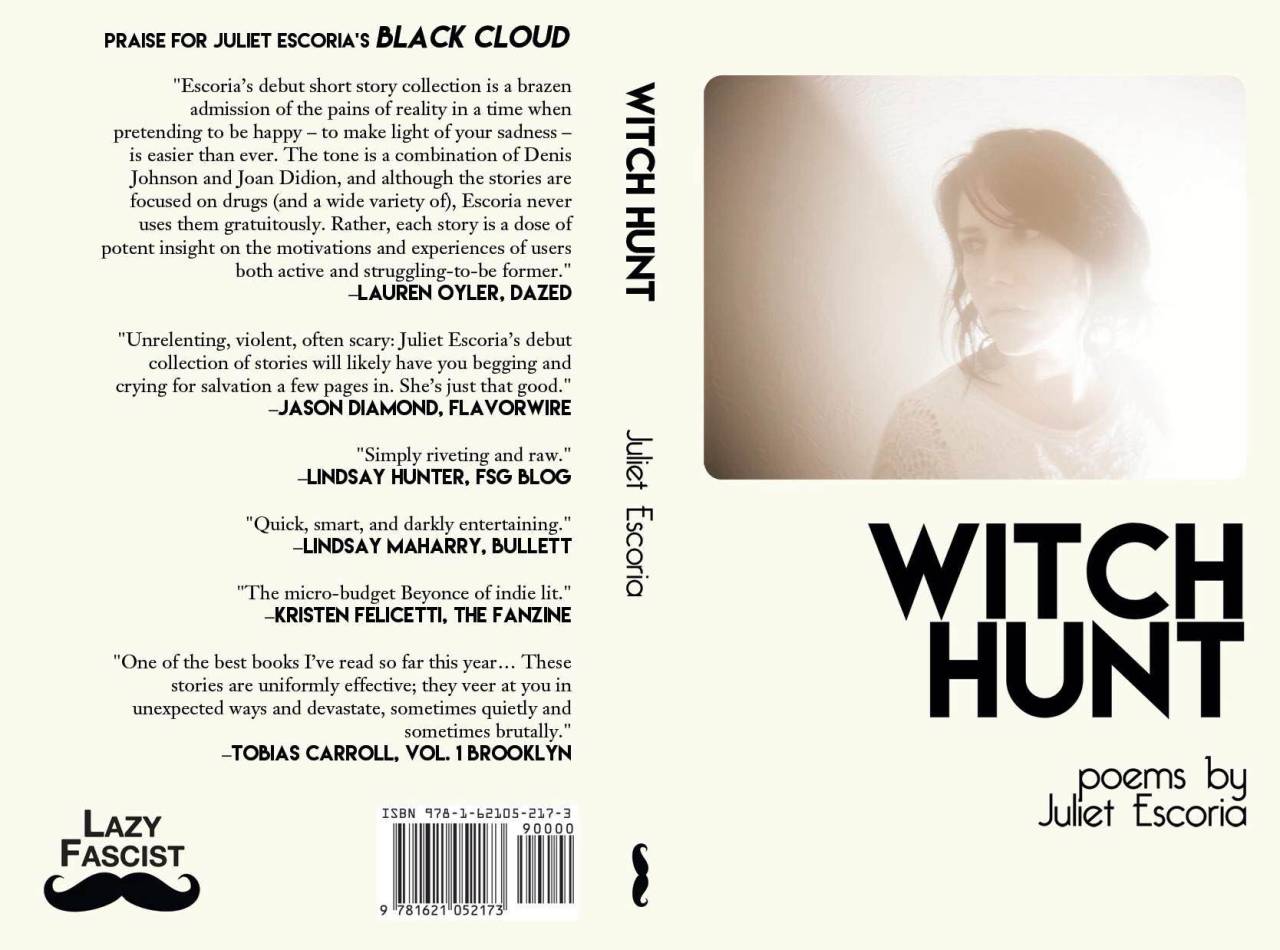Strixologist as Examining Magistrate of Nature: Notes on Juliet Escoria’s Witch Hunt

I.
I’ll let you fuck me
if you make it quick.
Like mechanized.
Like we both come
and that’s it.
No funny business
in between.
Those four sentences uttered by the narrator of Juliet Escoria’s new book, Witch Hunt, published recently by the critically acclaimed indie press Lazy Fascist, demonstrate the precise composition, emotional wreckage, and elegance of language on display in this powerful text.
The passive first line compared to the assertive lines directly following illustrate the text’s general ethos: deadpan checked-out ghosts of people bumping into one another’s atmosphere where desire forms and floats without anchor. Still, these ghost people transform drug addiction, mental illness, suicide, domestic abuse, political correctness, formal experimentation, epistolary, haiku, conceptual, confessional, visual expectations.
So many ghost people exist inside her sentences. So many performances. From the opening section of the ten-part long poem titled “True Romance,” where the above quote originates, the speaking subject comes into focus so quickly and so resonantly, readers sometimes mistakenly presume to understand Escoria’s speaker way too prematurely. It’s true we come to know a person in the pages of Witch Hunt, but through the course of the book the speaker remains unflinchingly unpredictable. What she does one moment doesn’t forecast what she’ll do in another. To assume to know the narrator, to expect to know what she will say or do or think at any moment proves preposterous. Since this passage appears late in the book, readers who start at the beginning and move forward in the standard reading fashion (as opposed to skipping around) already know they don’t know what’s coming next; what distinguishes this particular moment in the book is the role it plays in the overall structure of Escoria’s fragmented twenty-first century confessional romance narrative. It begins the descent to terminus.
Hopefully the following notes convincingly attest to the raw elegance of Witch Hunt, while nevertheless ultimately revealing my strong admiration for it. As we enter the darkness of 2017 — don’t forget, those Game of Thrones people kept warning us the winter was coming! — let us not forgot this powerful 2016 release. Escoria taps into something vital about our current cultural condition and engages with it in provocative ways. So here’re my thoughts on why I highly recommend it:
January 6th, 2017 / 3:26 pm
